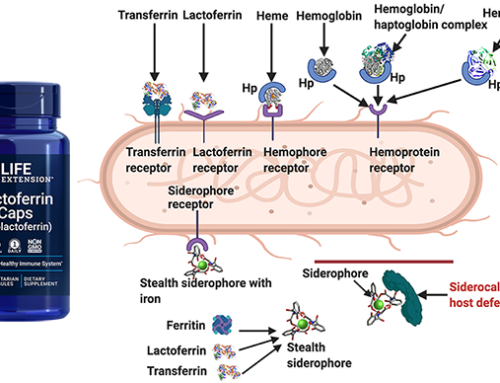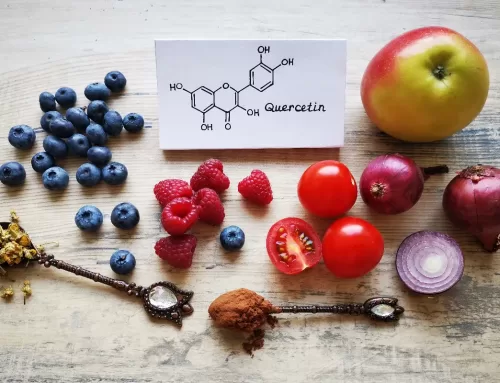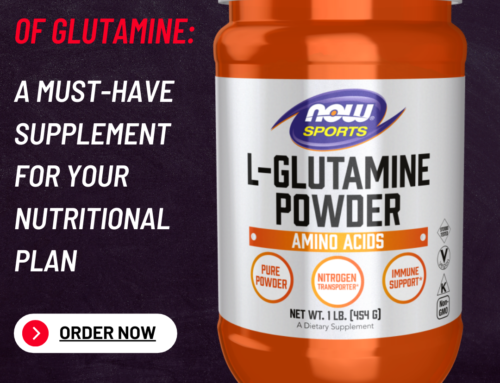Disclaimer: Although I do receive a tiny commission with some of the links in this article, I use and believe in all of the products mentioned. This product is not intended to diagnose, treat, cure, or prevent any disease. Results may vary from person to person. This information does not constitute medical advice and it should not be relied upon as such. Consult with your doctor before modifying your regular medical regime.
Inflammation is a natural response of the body’s immune system, a protective reaction to infection, injury, or irritation. However, when inflammation becomes chronic, it can lead to a host of diseases and is often associated with excess weight. Chronic inflammation has been linked to heart disease, diabetes, arthritis, depression, and even cancer.1 An anti-inflammatory diet, rich in fruits, vegetables, lean protein, whole grains, and healthy fats, can be a powerful tool in reducing inflammation levels and decreasing the risk of these diseases.2
Understanding Inflammation and Disease
The diet plays a pivotal role in influencing inflammation. Foods high in sugar and saturated fat can spur inflammation, while a diet low in these substances but high in omega-3 fatty acids, antioxidants, and fiber can help reduce it.3 Chronic inflammation can damage healthy cells and tissues, and over time, this damage can lead to DNA changes that contribute to the development of diseases.4
The Weight-Inflammation Connection
Obesity itself is an inflammatory state. Adipose tissue, particularly visceral fat, secretes pro-inflammatory cytokines, which can contribute to insulin resistance and atherogenic processes.5 Therefore, weight loss is a critical component of reducing inflammation. An anti-inflammatory diet not only helps in reducing inflammation but also supports weight loss by emphasizing nutrient-dense, low-calorie foods.6
Healing the Gut with Glutamine and Probiotics
The gut is often referred to as the “second brain” and is a key player in the body’s immune response. A healthy gut lining helps to prevent the leakage of harmful substances that can trigger inflammation. Glutamine, an amino acid, is crucial for repairing and maintaining a healthy gut lining.7 It serves as a primary fuel for the cells of the intestinal lining and can help to ensure that the gut’s barrier function is intact.
Probiotics from Pendulum Therapeutics can complement glutamine’s effects by replenishing the gut with beneficial bacteria. These good bacteria can improve digestion, enhance the synthesis of anti-inflammatory compounds, and reduce the presence of endotoxins that can lead to inflammation.8 Probiotics have also been shown to increase the release of GLP-1, which reduces appetite.9 Incorporating probiotic supplements into an anti-inflammatory diet may further lower inflammation levels and contribute to overall health.
Implementing an Anti-Inflammatory Diet

To embrace an anti-inflammatory lifestyle, one should:
1. Increase fruits and vegetables: Aim for a variety of colors to ensure a wide range of antioxidants and phytonutrients.10
2. Choose whole grains: Rich in fiber, whole grains can help reduce inflammation markers like C-reactive protein.11
3. Include healthy fats: Sources like olive oil, nuts, and fatty fish provide omega-3 fatty acids that are known for their anti-inflammatory properties.12
4. Limit processed foods: These are often high in sugar, trans fats, and other pro-inflammatory ingredients.13
5. Stay hydrated: Adequate water intake can help reduce inflammation and aid in weight loss.14
6. Drink teas, especially green tea, and supplement with trans-resveratrol to increase your intake of polyphenols. Polyphenols nourish the good bacteria in your gut and can prevent the growth of bad bacteria.15
Click here for a simple 7 day meal plan that you can follow with supplement timing included. The amount of macronutrients (carbs, fat, protein) will depend on your caloric needs.
In summary, adopting an anti-inflammatory diet may help mitigate the risk of chronic diseases, aid in weight loss, and improve overall health. The addition of gut-healing nutrients like glutamine and probiotics from Pendulum Therapeutics can further enhance these benefits by maintaining the integrity of the gut lining, balancing the gut microbiome, and increasing GLP-1 to reduce appetite.
References:
1. Libby P. Inflammation in atherosclerosis. Arterioscler Thromb Vasc Biol. 2012;32(9):2045-2051. doi:10.1161/ATVBAHA.108.179705
2. Shivappa N, Steck SE, Hurley TG, Hussey JR, Hébert JR. Designing and developing a literature-derived, population-based dietary inflammatory index. Public Health Nutr. 2014;17(8):1689-1696. doi:10.1017/S1368980013002115
3. Calder PC, Ahluwalia N, Albers R, et al. A consideration of biomarkers to be used for evaluation of inflammation in human nutritional studies. Br J Nutr. 2013;109 Suppl 1:S1-S34. doi:10.1017/S0007114512005119
4. Reuter S, Gupta SC, Chaturvedi MM, Aggarwal BB. Oxidative stress, inflammation, and cancer: how are they linked?. Free Radic Biol Med. 2010;49(11):1603-1616. doi:10.1016/j.freeradbiomed.2010.09.006
5. Després JP, Lemieux I. Abdominal obesity and metabolic syndrome. Nature. 2006;444(7121):881-887. doi:10.1038/nature05488
6. Esposito K, Giugliano D. Diet and inflammation: a link to metabolic and cardiovascular diseases. Eur Heart J. 2006;27(1):15-20. doi:10.1093/eurheartj/ehi605
7. Soares PM, Lima Rda S, Rocha AM, et al. Effects of glutamine on bacterial translocation in rats submitted to intestinal obstruction and ischaemia/reperfusion. Clin Nutr. 2007;26(5):688-695. doi:10.1016/j.clnu.2007.06.007
8. Pluznick JL. A novel SCFA receptor, the microbiota, and blood pressure regulation. Gut Microbes. 2014;5(2):202-207. doi:10.4161/gmic.27492
9. Choi SS, Diehl AM. Role of the intestinal microbiome in liver health and disease. Clin Sci (Lond). 2019;133(7):797-811. doi:10.1042/CS20180902
10. Slavin JL, Lloyd B. Health Benefits of Fruits and Vegetables. Adv Nutr. 2012;3(4):506-516. doi:10.3945/an.112.002154
11. North CJ, Venter CS, Jerling JC. The effects of dietary fibre on C-reactive protein, an inflammation marker predicting cardiovascular disease. Eur J Clin Nutr. 2009;63(8):921-933. doi:10.1038/ejcn.2009.8
12. Wall R, Ross RP, Fitzgerald GF, Stanton C. Fatty acids from fish: the anti-inflammatory potential of long-chain omega-3 fatty acids. Nutr Rev. 2010;68(5):280-289. doi:10.1111/j.1753-4887.2010.00287.x
13. De Filippis F, Pellegrini N, Vannini L, et al. High-level adherence to a Mediterranean diet beneficially impacts the gut microbiota and associated metabolome. Gut. 2016;65(11):1812-1821. doi:10.1136/gutjnl-2015-309957
14. Jéquier E, Constant F. Water as an essential nutrient: the physiological basis of hydration. Eur J Clin Nutr. 2010;64(2):115-123. doi:10.1038/ejcn.2009.111
15. Wang X, Qi Y, Zheng H. Dietary Polyphenol, Gut Microbiota, and Health Benefits. Antioxidants (Basel). 2022;11(6):1212. Published 2022 Jun 20. doi:10.3390/antiox11061212







